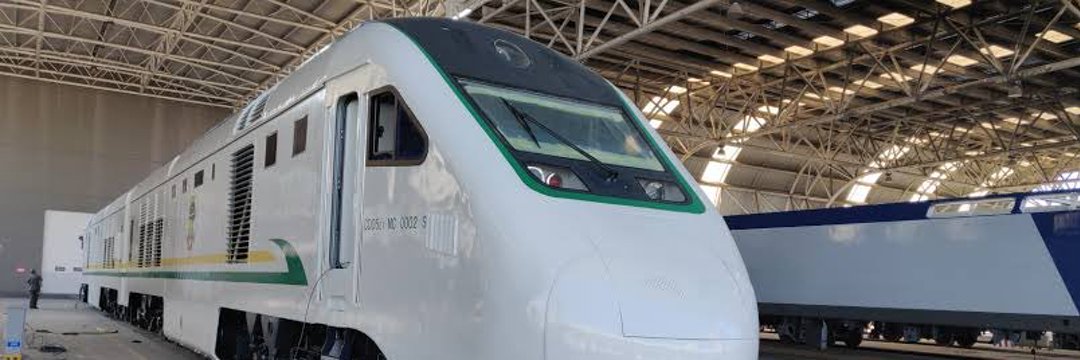
This was disclosed in a statement signed by the ministry’s Director, Press and Public Relations, Olujimi Oyetomi, on Thursday.
Alkali was said to have reiterated the desire of President Bola Ahmed Tinubu’s administration to provide Nigerians with efficient, affordable, and sustainable transportation given the recent removal of subsidy on fuel.
On Tuesday, March 12, 2024, the De-Sadel consortium presented the LNG-CNG alternative for joint deliberation by the Ministry of Transportation and the NRC at the Ministry’s headquarters.
Alkali expressed optimism that this transition could lead to more effective, efficient, and possibly cheaper rail services for Nigerians, especially in the wake of the recent removal of fuel subsidies.
To expedite the process, Alkali directed the immediate formation of a seven-member technical committee tasked with evaluating the feasibility and potential outcomes of retrofitting NRC’s locomotives with LNG-CNG technology.
The committee was given a timeframe of seven to 14 days to produce recommendations.
“It is the desire of our President, Bola Ahmed Tinubu, to provide an efficient, affordable, and sustainable transportation system for the people of this great country and I am sure this would go a long way in bringing down the cost of transportation,” Alkali said.
He found reasonable the proposal by De-Sadel Company to retrofit their existing LNG-CNG kits onto NRC’s locomotives at zero cost to the government and to provide replacements in case of damage.
Alkali, eager to proceed with retrofitting an NRC locomotive through the De-Sadel consortium, instructed the Permanent Secretary, Olufemi Oloruntola, to assemble a joint team of mechanical engineers from the Transportation Ministry, NRC, and De-Sadel Consortium.
He emphasised the gradual transition from diesel to gas usage, starting with a 50-50 ratio and progressing to 30-70 and ultimately 0-100.
“A committee will be set up immediately after this interactive session, and they are to commence deliberations and discussions at the Ministry’s headquarters. They are to advise and possibly have a gas-powered locomotive ready for test run within the very short possible time,” the minister directed.
Following the directive, the technical committee swiftly conducted evaluations, culminating in a visit to NRC’s workshop in Idu, Abuja, on March 13, 2024.
The committee’s findings confirmed the viability of retrofitting NRC’s locomotives with LNG-CNG technology.
Managing Director of De-Sadel Consortium, Sam Uko, underscored the benefits of adopting LNG-CNG technology, including cost reduction and extended engine lifespan.
Uko revealed that the Consortium already has 50 gas-powered locomotives installed and ready for deployment, with a commitment to supply gas for 5 years to alleviate concerns about gas scarcity.
Uko clarified that the implementation strategy of retrofitting into a dual-fuel locomotive shouldn’t be regarded as a conversion or modification of the engines.
Aside from retrofitting NRC’s locomotives, De-Sadel Consortium also proposed security installations across the rail corridors in the country, a system that deploys real-time monitoring for the train wagons and the rail lines to deter vandals and attacks.
He stated that the technology will allow much more security for the rail services, such that the trains can operate 24/7, increasing NRC’s turnover from gas usage and security.
Furthermore, the De-Sadel Consortium proposed additional security installations along rail corridors to enhance safety and prevent vandalism.
Uko emphasised that real-time monitoring systems would deter attacks, allowing trains to operate 24/7, thereby increasing NRC’s revenue from gas usage.













